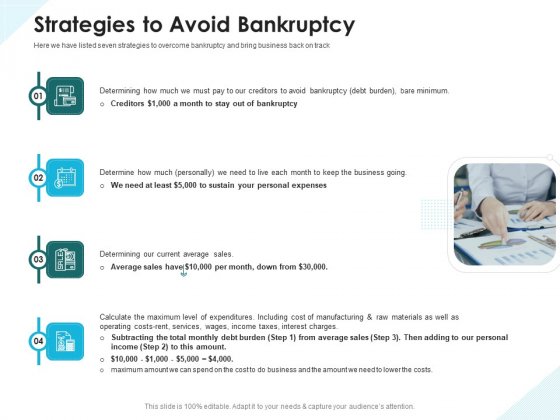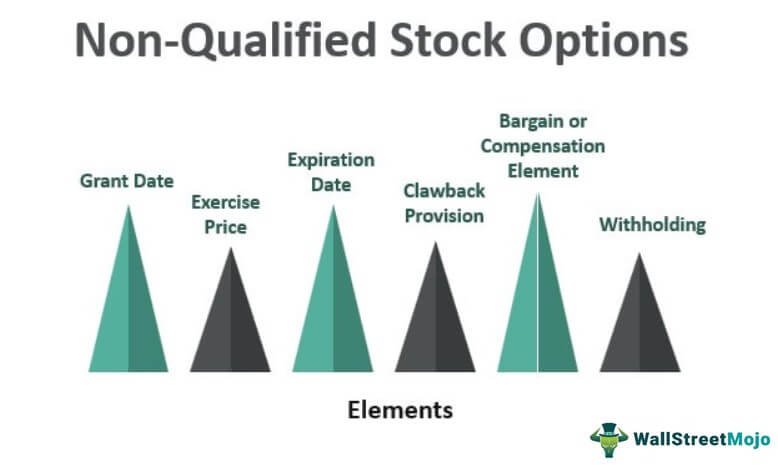Are you concerned about the possibility of personal bankruptcy? Worried about the potential financial hardships it can bring? Well, fret not! In this article, we will discuss effective strategies for avoiding personal bankruptcy and securing your financial future. We understand the stress and uncertainty that come with overwhelming debt, and we’re here to help you navigate your way to financial stability. So, let’s dive right in and explore some practical approaches that can provide you with the peace of mind you deserve. Let’s uncover the strategies for avoiding personal bankruptcy that will empower you to take control of your financial well-being.
Strategies for Avoiding Personal Bankruptcy
Introduction
Personal bankruptcy can be a devastating financial situation, but it’s important to remember that there are strategies you can employ to avoid reaching this point. By taking proactive steps and making informed decisions, you can protect yourself from the repercussions of bankruptcy and maintain control over your financial future. In this article, we will explore effective strategies that can help you avoid personal bankruptcy and achieve financial stability.
1. Create a Realistic Budget
One of the first and most essential steps in avoiding personal bankruptcy is creating a realistic budget. A budget helps you track your income and expenses, allowing you to make informed decisions about where your money goes. Follow these guidelines to create a budget that works for you:
- List all your sources of income. Include your salary, freelance work, rental income, or any other income streams.
- Track your expenses. Look through your bank statements, receipts, and bills to understand where your money is going.
- Categorize your expenses. Group your expenses into categories like housing, transportation, groceries, utilities, debt payments, and entertainment.
- Identify areas for potential savings. Review your expenses and identify areas where you can cut back or find alternative, more affordable options.
- Set achievable financial goals. Determine how much you can afford to save each month and set goals for paying off debt or building an emergency fund.
Creating a budget allows you to have a clear picture of your financial situation, make necessary adjustments, and take control of your spending habits.
2. Minimize Your Debt
Debt can quickly spiral out of control and lead to bankruptcy if left unmanaged. By taking proactive steps to minimize your debt, you can significantly reduce your financial burden. Here are some strategies to consider:
- Create a debt repayment plan. Prioritize your debts based on interest rates and try to pay off high-interest debts first while making minimum payments on the rest.
- Consider debt consolidation. If you have multiple high-interest debts, consolidating them into a single, lower-interest loan can make repayment more manageable.
- Negotiate with creditors. Reach out to your creditors and explore options for negotiating lower interest rates or more favorable repayment terms.
- Avoid taking on new debts. Reduce or eliminate your reliance on credit cards and loans, and focus on living within your means.
- Seek professional help if needed. If your debt situation feels overwhelming, consider consulting a credit counselor or a debt management agency.
By actively working towards reducing your debt load, you can free up more income for savings and establish a solid foundation for your financial stability.
3. Build an Emergency Fund
Having an emergency fund is crucial in preventing financial emergencies from pushing you towards bankruptcy. An emergency fund acts as a safety net, providing you with a buffer in times of unexpected expenses or loss of income. Here’s how to build an emergency fund:
- Set a savings goal. Aim to save at least three to six months’ worth of living expenses in your emergency fund.
- Start small and be consistent. Even if you can only save a small amount each month, it’s important to start somewhere and be consistent with your savings.
- Automate your savings. Set up automatic transfers from your paycheck to your savings account to ensure consistent contributions.
- Save windfalls and extra income. Whenever you receive unexpected income like bonuses or tax refunds, allocate a portion of it towards your emergency fund.
- Avoid tapping into your emergency fund for non-emergencies. Reserve the fund strictly for genuine emergencies to maintain its effectiveness.
Having an emergency fund provides you with peace of mind and financial security, reducing the likelihood of resorting to bankruptcy when unexpected situations arise.
4. Increase Your Income
Increasing your income can help you improve your financial situation and avoid bankruptcy. While it may not be easy or immediate, exploring opportunities to boost your income can be highly beneficial. Consider the following strategies:
- Advance in your career. Seek professional development opportunities, additional training, or certifications that can lead to promotions or better-paying jobs.
- Take on a side gig or freelance work. Utilize your skills or explore new talents to generate additional income outside of your primary job.
- Rent out unused space. If you have a spare room or property, consider renting it out to generate extra income.
- Monetize a hobby. If you have a passion or skill that can be turned into a profit, explore ways to monetize it through selling products or offering services.
- Invest wisely. Educate yourself about investment opportunities that align with your risk tolerance and financial goals, potentially providing additional income streams.
Increasing your income not only helps you stay afloat financially but also provides you with more flexibility to manage your expenses and save for the future.
5. Seek Professional Financial Advice
When navigating complex financial situations, seeking professional advice can be invaluable. Financial advisors or credit counselors can offer guidance and expertise tailored to your specific circumstances. Here’s how they can assist you:
- Assess your financial situation. A professional can review your finances, identify problem areas, and provide you with a clear assessment of your options.
- Create a customized plan. Based on your goals and financial situation, a professional can help you create a personalized plan to avoid bankruptcy and achieve financial stability.
- Provide debt management strategies. Experts can assist you in negotiating with creditors, exploring debt consolidation options, or setting up a debt repayment plan.
- Offer ongoing support and guidance. A professional can provide ongoing support, monitoring your progress, and adjusting your strategies as needed.
Remember to choose a reputable professional with relevant certifications and credentials to ensure you receive accurate and reliable advice.
Personal bankruptcy can have severe consequences, but by implementing these strategies, you can avoid reaching such a critical point. Creating a realistic budget, minimizing debt, building an emergency fund, increasing your income, and seeking professional advice are all powerful tools that can empower you to take control of your finances. By being proactive and making informed decisions, you can navigate your financial challenges and achieve long-term stability and security.
How do Rich People File Bankruptcy and Not Lose Anything
Frequently Asked Questions
Frequently Asked Questions (FAQs)
What are some strategies for avoiding personal bankruptcy?
Developing and implementing effective strategies can help you avoid personal bankruptcy. Here are some key strategies:
How can I manage and reduce my debts to avoid bankruptcy?
To manage and reduce your debts, you should:
What steps can I take to improve my financial situation and avoid bankruptcy?
To improve your financial situation and avoid bankruptcy, consider taking the following steps:
Is it necessary to create a budget to avoid personal bankruptcy?
Creating and sticking to a budget is crucial for avoiding personal bankruptcy. Here’s how you can create a budget:
Are there any alternatives to bankruptcy that I can explore?
Yes, there are alternatives to bankruptcy that you can consider. Some of these options include:
How can I protect my assets from being seized in a bankruptcy?
To protect your assets from being seized in a bankruptcy, you should:
What role does insurance play in avoiding personal bankruptcy?
Insurance can play a significant role in helping you avoid personal bankruptcy. Here’s how insurance can protect you:
What are some warning signs that indicate the possibility of personal bankruptcy?
Recognizing the warning signs can help you take timely action and avoid personal bankruptcy. Look out for the following signs:
Final Thoughts
Strategies for avoiding personal bankruptcy include a focus on budgeting and managing finances responsibly. Start by creating a realistic budget to track income and expenses, ensuring that spending remains within the means. Prioritize debt payments and consider negotiating with creditors for lower interest rates or payment plans. Building an emergency fund can provide a safety net during unexpected financial hardships. Additionally, exploring options like debt consolidation or seeking professional financial advice can offer guidance and assistance. By implementing these strategies for avoiding personal bankruptcy, one can take control of their financial future and secure stability.



